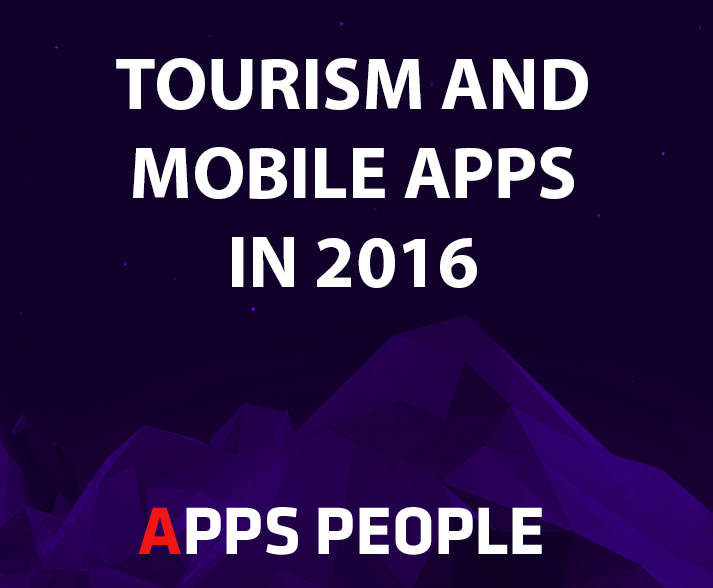
Tourism and Mobile Apps in 2016
Mobile apps are integrating into almost everything we do at a supersonic speed. From finding a bed to sleep in for the night to finding the love of your life, they have it covered. Some have such an impact we wouldn’t know what to do without them.
What impact are mobile apps having in tourism and what will become of the tourism Luddites if they don’t marry into the digital revolution?
Destination planning
Back in the pre-website days when you needed a holiday you’d head to the local library to visit the travel section. Then you’d make a b-line to a travel agent like Flight Centre and stock up on glossy brochures to take home to show your partner and family. Your travel agent would become your best friend, they’d get to know all the things you liked and didn’t like.
With the advent of the web the little travel agent took a blow to its business model – people started researching travel destinations online, they lost their love with their travel agents. Since then there’s more ways than ever to discover new destinations, including apps like Pinterest and Facebook.
Flight booking
App users can now sit on public transport and find the cheapest flights in a matter of minutes using Skyscanner, Kayak or Webjet. Apps can even send you notifications when they find a price drop in the market for your route.
Accommodation
Check out Airbnb, they’ve taken the planet by storm and people are renting out their bedrooms, houses and apartments – even granny flats. The local rag listing rooms for rent is no longer relevant. One oddity is that supermarket noticeboards are still full of local ads renting out bedrooms. No photograph, just a scribble with a price.
The pros of Airbnb is that travellers get a chance to stay in a fully serviced accommodation, that could mean they may have a lovely kitchen with salt, pepper, vinegar and a dishwasher, a garden and other regular household items. It really feels like you’re a local.
The dark side
Some hotel owners are up in arms stating it clearly that a guest’s safety and privacy is not protected with Airbnb. This week US Fox Sports broadcaster, Erin Andrews successfully won a legal battle against a hotel group for breaching her privacy. She was awarded US$55 million. A stalker altered the peephole on her hotel door and filmed her changing and after a failed attempt to sell it to TMZ he instead uploaded it online for the world to view. The stalker received 2.5 years in jail and the hotel group needs to pay about US$27 million. If a similar situation hit Airbnb would the homeowner be deemed partly responsible like the hotel group was?
Discovering your destination
Does anyone remember Lonely Planet? The largest travel book guide in the world and founded by Maureen and Tony Wheeler back in the early 70s. It became the bible for backpackers and what was reviewed on those pages either would make or break businesses. Each book would usually list just a few accommodations, a few bars and restaurants and a few places worth checking out. Whole cities would shake on their foundations when a new publication was released and it received a scathing review.
Fast forward to 2016 and Lonely Planet isn’t big on backpacker’s agendas as much anymore, a smartphone app like TripAdvisor can give all the most up to the minute reviews that paperback could never produce. The publication was sold in 2013 by BBC for US$77 million. In 2008 it was valued at US$250 million. In my opinion Lonely Planet has lost the tourism race by a long shot and they’ll be relegated to coffee table type books and photography competitions.
TripAdvisor has gone from strength to strength since their website was founded in 2000 and in 2014 they had a revenue of US1.2 billion. Like most successful companies they are continuing their assault on the tourism market through acquisitions. In 2015 they purchased for US$25 million Australian startup, Dimmi, the restaurant booking service. That’s one of their less significant purchases, in 2014 they spent a whopping US$440 million on just 2 acquisitions ($240 million and $200 million).
TripAdvisor is fundamentally a place to read collated reviews and ratings so that you can assess which places you wish to visit whereas Lonely Planet is reviewed by the Lonely Planet team. TripAdvisor gives a much better idea of whether a place is good or bad – at least in my point of view. I call it tourism crowd scoring and it works really well. When I arrive at a new destination I open up TripAdvisor and see what places are around me and how well they are rated.
Tour guides
Up until recently you needed a tour guide to give you a true experience of a city from a local’s perspective but nowadays you can in fact find online travel guides which ‘hold your hand’ when you walk around. They work using GPS and iBeacon technology and narrative starts when the app recognises the area you’re passing through. There’s plenty of audio guides in app form but to see an app that really takes advantage of GPS and iBeacons then check out the app we developed, Everythere. It’ll allow you to take self-guided audio tour around parts of Sydney, Perth, Melbourne and many other destinations.
The future
I remember back in 1994, me telling my brother that I was about to visit Barcelona and him telling me that he can visit it online. He was convinced that he didn’t need to leave his house and could see enough of Barcelona online. I wondered what this internet thing was and started researching it.
Of course visiting a website or even an app is not the same experience as actually being there, you miss out on the smells, the people around you, the noises and hanging out in cool bars.
Enter stage left – VR 360. Virtual Reality 360 devices are on their way, in fact many of them are already here. It means you can put on some nerdy headset and tilt your head in any direction and immerse yourself in the video you are viewing. So Barcelona VR could be a possibility but it’s a long way to go before it’ll beat or even equal the experience of really being there.

